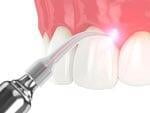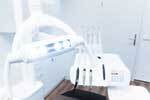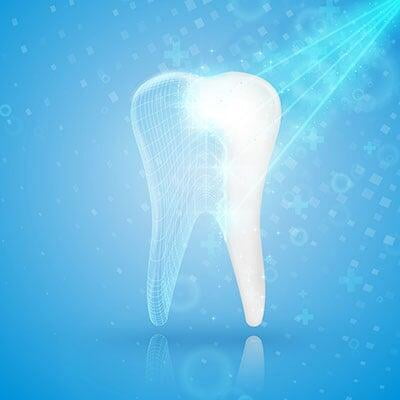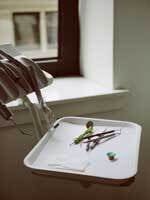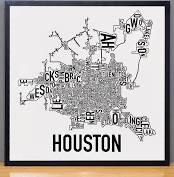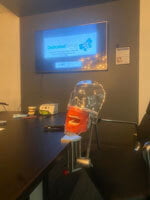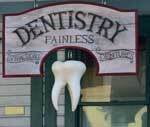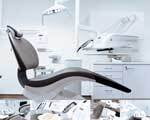Blog categorized as LASER
We are growing our reach to Idaho in 2023! The Idaho Board of Dentistry allows registered dental hygienists to perform laser functions restricted to gingival curettage and bleaching under direct supervision.
Kristin A. Hunter RDH BS
02/01/2024 10:06 AM - Comment(s)
As the use of laser as an adjunct to non-surgical periodontal therapy gains popularity for dental hygienists, professionals must keep an eye on the ever-evolving criteria and licensing rules. South Carolina established a new regulation for dental hygienists in 2021 regarding the use of lasers.
Kristin A. Hunter RDH BS
02/01/2024 10:06 AM - Comment(s)
I’ve been approached more than once by people asking how they can become a dental laser instructor too. It was the motivation behind a new initiator program here at DDH, and it could be just the opportunity you’re looking for.
Kristin A. Hunter RDH BS
02/01/2024 10:05 AM - Comment(s)
If you’re a registered dental hygienist looking for a dental laser certification course in Arizona, here’s what to know to ensure you’re meeting the state’s requirements.
Kristin A. Hunter RDH BS
02/01/2024 10:05 AM - Comment(s)
Would you be surprised to learn that many traditional dental tools haven’t changed all that much since their invention back in the 1800s? It’s true! But one of the big exceptions is the dental laser.
Kristin A. Hunter RDH BS
02/01/2024 10:04 AM - Comment(s)
As part of our commitment to continuing education, Dedicated Dental Hygiene is pleased to announce our upcoming November event in partnership with Lancette VanGuilder, RDH, BS, PHDHE of Hygienist for Health with guest presenters Dr. Jason Goodchild, DMD, and Xuan-Thu Failing, RDH, OMT, BSDH.
Kristin A. Hunter RDH BS
02/01/2024 10:04 AM - Comment(s)
Dedicated Dental Hygiene is partnering with Angie Wallace, RDH, for an upcoming dental laser certification course in the Chicago area. There is no guidance currently listed in the Illinois Practice Act regarding certification courses, but the right training is essential regardless.
Kristin A. Hunter RDH BS
02/01/2024 10:03 AM - Comment(s)
Registered dental hygienists practicing in South Carolina have new rules to follow for the use of dental lasers. The biggest takeaway? RDHs in South Carolina need to meet a 12-hour requirement.
Kristin A. Hunter RDH BS
02/01/2024 10:02 AM - Comment(s)
At this time, individual states regulate their own State Practice Act and Scope of Practice, which means the use of the dental laser varies from one state to the next.
Kristin A. Hunter RDH BS
02/01/2024 10:01 AM - Comment(s)
Certification in dental lasers continues to become more and more important for dental hygienists, and California remains one of the states currently requiring a certification course. The challenge comes in finding the right training.
Kristin A. Hunter RDH BS
02/01/2024 10:01 AM - Comment(s)
Kristin Pristavec-Hunter was born and raised in Phoenix, Arizona. Her first job was working for her childhood dentist as a dental assistant. After earning her degree in dental hygiene from Rio Salado College in Phoenix, Kristin navigated the dental industry.
Kristin A. Hunter RDH BS
02/01/2024 10:01 AM - Comment(s)
Like many states, Texas has a State Practice Act that clearly states the use of the dental laser is allowed by the dental hygienist after completing no less than twelve hours of in-person continuing education by an approved provider.
Kristin A. Hunter RDH BS
02/01/2024 10:00 AM - Comment(s)
As the prevalence of the dental laser continues to grow, more and more registered dental hygienists and dental practices are pursuing training courses to ensure their proficiency and compliancy on this innovative tool.
Kristin A. Hunter RDH BS
02/01/2024 10:00 AM - Comment(s)
For dentists and registered dental hygienists, the difference between dental laser certification and dental laser training is become more and more pronounced. That’s true even in states that remain ambiguous about education requirements, like California.
Kristin A. Hunter RDH BS
02/01/2024 9:59 AM - Comment(s)
These days, any dental hygienist or dentist is familiar with dental laser technology. The laser has been used in dentistry since the early 90s, but today’s lasers have evolved into a that makes for a vastly superior patient
Kristin A. Hunter RDH BS
02/01/2024 9:59 AM - Comment(s)
While laser dentistry has been around since 1989, it’s rapidly growing in popularity. And it makes sense — the dental laser effectively treats tooth decay and gum disease without the side effects associated with traditional dental tools.
Kristin A. Hunter RDH BS
02/01/2024 9:59 AM - Comment(s)
Increasingly, certification in dental lasers is becoming an asset for dental hygienists. But while state dental boards across the US may not all mandate certification...
Kristin A. Hunter RDH BS
02/01/2024 9:58 AM - Comment(s)
Continuing education is a hallmark of any professional — no matter what the industry, staying current on the latest technology, breakthroughs, and perspectives is always an asset.
Kristin A. Hunter RDH BS
02/01/2024 9:58 AM - Comment(s)
Technology is an amazing thing, and advancements in the world of dental lasers are just one example. But as the dental laser continues to change the way in which dental professionals practice, it’s becoming clear that education is key.
Kristin A. Hunter RDH BS
02/01/2024 9:57 AM - Comment(s)
For many dental hygienists, the question isn’t whether or not to seek dental laser certification...
Kristin A. Hunter RDH BS
02/01/2024 9:57 AM - Comment(s)


